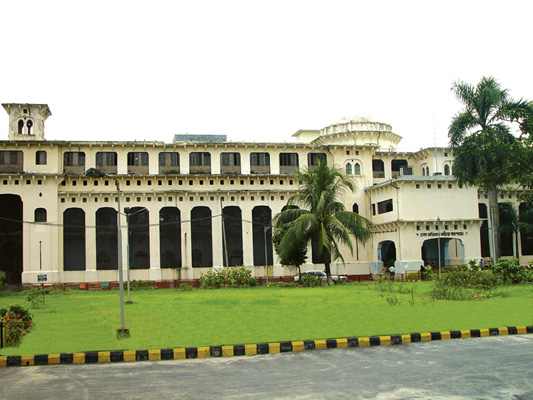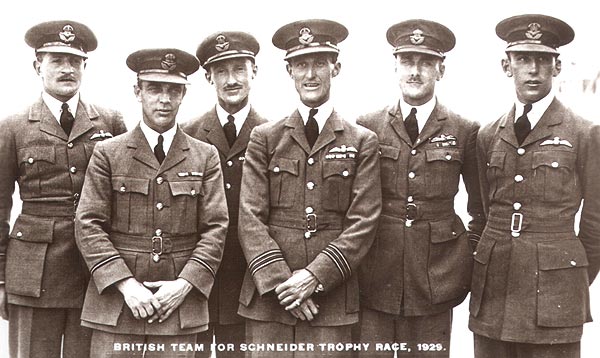|
Parliamentary History Of Pakistan
The political history of Pakistan ( ur, ) is the narrative and analysis of political events, ideas, movements, and leaders of Pakistan. Pakistan gained independence from the United Kingdom on 14 August 1947, when the Presidencies and provinces of British India were divided by the United Kingdom, in a region which is commonly referred to as the Indian subcontinent. Since its independence, Pakistan has had a colorful yet turbulent political history at times, often characterized by martial law and inefficient leadership. Pre-independence era The Pakistan Movement, as it came to be known, was based on the principle of two-nation theory, and aimed to establish a separate homeland for Muslims in South Asia. This was a movement against the oppression, that Muslims felt in the face of an increasingly politicized Hindu majority. The Pakistan Movement was spearheaded by Muhammad Ali Jinnah and staunchly opposed by some of Muslim religious scholars. Parliamentary democracy After the inde ... [...More Info...] [...Related Items...] OR: [Wikipedia] [Google] [Baidu] |
Pakistan
Pakistan ( ur, ), officially the Islamic Republic of Pakistan ( ur, , label=none), is a country in South Asia. It is the world's List of countries and dependencies by population, fifth-most populous country, with a population of almost 243 million people, and has the world's Islam by country#Countries, second-largest Muslim population just behind Indonesia. Pakistan is the List of countries and dependencies by area, 33rd-largest country in the world by area and 2nd largest in South Asia, spanning . It has a coastline along the Arabian Sea and Gulf of Oman in the south, and is bordered by India to India–Pakistan border, the east, Afghanistan to Durand Line, the west, Iran to Iran–Pakistan border, the southwest, and China to China–Pakistan border, the northeast. It is separated narrowly from Tajikistan by Afghanistan's Wakhan Corridor in the north, and also shares a maritime border with Oman. Islamabad is the nation's capital, while Karachi is its largest city and fina ... [...More Info...] [...Related Items...] OR: [Wikipedia] [Google] [Baidu] |
Urdu Language
Urdu (;"Urdu" ''Random House Webster's Unabridged Dictionary''. ur, , link=no, ) is an Indo-Aryan languages, Indo-Aryan language spoken chiefly in South Asia. It is the Languages of Pakistan, national language and ''lingua franca'' of Pakistan, where it is also an official language alongside English language, English. In India, Urdu is an Eighth Schedule to the Constitution of India, Eighth Schedule language whose status and cultural heritage is recognized by the Constitution of India; Quote: "The Eighth Schedule recognizes India's national languages as including the major regional languages as well as others, such as Sanskrit and Urdu, which contribute to India's cultural heritage. ... The original list of fou ... [...More Info...] [...Related Items...] OR: [Wikipedia] [Google] [Baidu] |
Dhaka Medical College
Dhaka Medical College and Hospital (abbreviated DMCH) is a public medical college and hospital located in Dhaka, the capital city of Bangladesh. It houses medical school as well as a tertiary care hospital on one campus. The country's first ever autologous bone marrow transplant took place in its bone marrow transplant unit. History Site during pre-college years The college's original building was built before the Partition of Bengal of 1905. As of 1904, the building was being used as the secretariat (headquarters) of the newly formed provinces of East Bengal and Assam. In 1921, it was turned over to the University of Dhaka, which was founded that year. A part of the huge building was used as the university's medical center, another part as the students' dormitory, and the rest as the office of the administrative wing of the Arts faculty. In 1939, the Dhaka University council requested the British Government to establish a separate medical college in Dhaka. The proposal wa ... [...More Info...] [...Related Items...] OR: [Wikipedia] [Google] [Baidu] |
Jawaharlal Nehru
Pandit Jawaharlal Nehru (; ; ; 14 November 1889 – 27 May 1964) was an Indian anti-colonial nationalist, secular humanist, social democrat— * * * * and author who was a central figure in India during the middle of the 20th century. Nehru was a principal leader of the Indian nationalist movement in the 1930s and 1940s. Upon India's independence in 1947, he served as the country's prime minister for 16 years. Nehru promoted parliamentary democracy, secularism, and science and technology during the 1950s, powerfully influencing India's arc as a modern nation. In international affairs, he steered India clear of the two blocs of the Cold War. A well-regarded author, his books written in prison, such as ''Letters from a Father to His Daughter'' (1929), '' An Autobiography'' (1936) and ''The Discovery of India'' (1946), have been read around the world. During his lifetime, the honorific Pandit was commonly applied before his name in India and even today too. T ... [...More Info...] [...Related Items...] OR: [Wikipedia] [Google] [Baidu] |
Jamiat Ulema-e-Pakistan
Jamiat Ulema-e-Pakistan (JUP) ( ur, ) is a Islamist political party in Pakistan. It was founded in 1948 by leaders of All India Sunni Conference. JUP exercised considerable political influence in Pakistani politics during 1970s to 2003. Its students' wing Anjuman Talaba-e-Islam has a considerable following in Sunni institutions across the country. The Party is considered a moderate force in the country. History It was established on 28 March 1948 in Multan, Pakistan by the leaders of All India Sunni Conference to present Sunni Sufi representation in Islamic Republic of Pakistan.It had major support base in Sindh and Punjab. JUP supported Ayub Khan's regime during the 1965 presidential elections on the promises of getting a Shariah-based Pakistan. In the 1970 elections, the JUP got the seven seats in Sindh under the leadership of Maulana Ahmad Shah Noorani but it did not join General Zia' Ul Haq government due to Salafi-Saudi inclination of Zia regime.The party was opposed to Z ... [...More Info...] [...Related Items...] OR: [Wikipedia] [Google] [Baidu] |
Karachi Agreement
The Karachi Agreement of 1949 was signed by the military representatives of India and Pakistan, supervised by the United Nations Commission for India and Pakistan, establishing a cease-fire line in Kashmir following the Indo-Pakistani War of 1947. It established a cease-fire line which has been monitored by United Nations observers from the United Nations since then. Background The Security Council Resolution 39 of April 1948 established a UN Commission (United Nations Commission for India and Pakistan — UNCIP) to mediate between India and Pakistan to bring about a cessation of fighting in Kashmir and to make arrangements for a popular plebiscite. After negotiations with the two sides, the Commission passed a three-part resolution in August 1948 and subsequently added a 'supplement'. The three parts dealt with ceasefire, terms for truce, and procedures for negotiation regarding the plebiscite. Both the countries accepted the resolution and a ceasefire was achieved on 31 De ... [...More Info...] [...Related Items...] OR: [Wikipedia] [Google] [Baidu] |
James Wilfred Jefford
Vice Admiral James Wilfred Jefford CB, CBE (22 March 1901 – 1 January 1980) was the first Commander-in-Chief of the Royal Pakistan Navy, serving from its inception in 1947 until 1953. Most of his early career was in the Royal Indian Navy. Jefford served in the Royal Navy as a midshipman during the First World War and was commissioned into the Royal Indian Marine as a sub-lieutenant on 23 March 1922. He was successively promoted to lieutenant, RIM (23 March 1925) to lieutenant-commander, RIN, to acting commander, RIN, in 1940 and to substantive commander, RIN (10 January 1941)., On 10 September 1946, Jefford was promoted to captain, RIN, and to commodore, RIN the following year. On the inception of the Dominion of Pakistan in 1947, Commodore Jefford transferred to the special list of the Royal Navy and was appointed Flag Officer commanding the new Royal Pakistan Navy with the acting rank of rear-admiral (15 August 1947). He retired from the Royal Indian Navy on 1 September ... [...More Info...] [...Related Items...] OR: [Wikipedia] [Google] [Baidu] |
Richard Atcherley
Air Marshal Sir Richard Llewellyn Roger Atcherley, (12 January 1904 – 18 April 1970) was a senior Royal Air Force officer. He served as Commander-in-Chief of the Royal Pakistan Air Force from 1949 to 1951. Early life Richard Atcherley and his twin David were born on 12 January 1904, and were the sons of Major General Sir Llewellyn Atcherley, Chief Constable of the West Riding of Yorkshire, and his wife, Eleanor Frances "Nelly" Mickelthwait (1871–1957), daughter of Richard Mickelthwait, of Ardsley House, in the valley of Deane near Barnsley. Major General Atcherley was a grandson of David Francis Atcherley of Marton Hall, High Sheriff of Shropshire, Serjeant-at-law, Attorney-General of the County Palatine of Lancaster and County Durham. Richard Atcherley and his brother, first cousins of William Empson, attended Oundle School in Northamptonshire. RAF career In 1922, Atcherley attended the RAF College Cranwell and was commissioned two years later. He initially served as ... [...More Info...] [...Related Items...] OR: [Wikipedia] [Google] [Baidu] |
Kashmir
Kashmir () is the northernmost geographical region of the Indian subcontinent. Until the mid-19th century, the term "Kashmir" denoted only the Kashmir Valley between the Great Himalayas and the Pir Panjal Range. Today, the term encompasses a larger area that includes the Indian-administered territories of Jammu and Kashmir and Ladakh, the Pakistani-administered territories of Azad Kashmir and Gilgit-Baltistan, and the Chinese-administered territories of Aksai Chin and the Trans-Karakoram Tract. Quote: "Kashmir, region of the northwestern Indian subcontinent. It is bounded by the Uygur Autonomous Region of Xinjiang to the northeast and the Tibet Autonomous Region to the east (both parts of China), by the Indian states of Himachal Pradesh and Punjab to the south, by Pakistan to the west, and by Afghanistan to the northwest. The northern and western portions are administered by Pakistan and comprise three areas: Azad Kashmir, Gilgit, and Baltistan, ... The southern and so ... [...More Info...] [...Related Items...] OR: [Wikipedia] [Google] [Baidu] |
Douglas Gracey
General Sir Douglas David Gracey & Bar (3 September 1894 – 5 June 1964) was a British Indian Army officer who fought in both the First and Second World Wars. He also fought in French Indochina and was the second Commander-in-Chief of the Pakistan Army. Gracey held this latter office from 11 February 1948 until his retirement on 16 January 1951. Born to English parents living in India, he was educated in English schools before returning to India to serve in the military there. Early life and military career Educated at Blundell's School and the Royal Military College, Sandhurst, Gracey was commissioned onto the Unattached List, Indian Army on 15 August 1914 as a second lieutenant. By early 1915 he had been attached to the 5th Extra Reserve Battalion, Royal Munster Fusiliers. He served in France from 11 January to 2 May 1915 when he was wounded.War services of British and Indian officers of the Indian Army 1941, page 227 In September 1915 he was appointed from the unattached ... [...More Info...] [...Related Items...] OR: [Wikipedia] [Google] [Baidu] |





